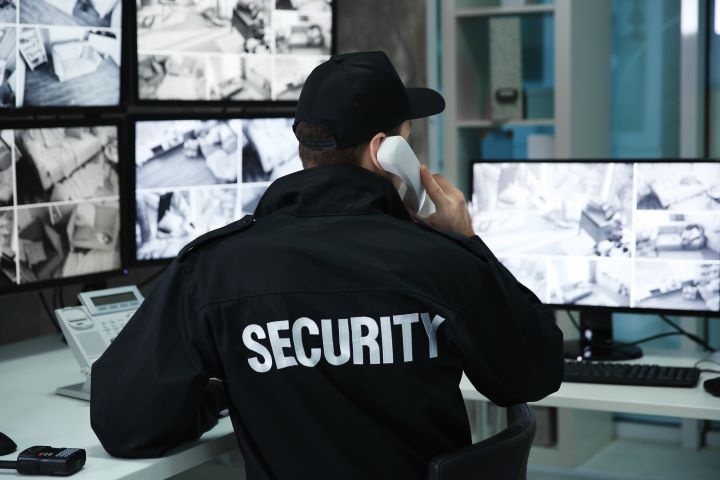Exploring Security Jobs: Protecting People and Property
Security professionals play a critical role in today's society, serving as the first line of defense for people, property, and assets. From traditional security guards to cybersecurity specialists, this growing field offers diverse career paths with meaningful impact and increasing technological integration. As safety concerns evolve globally, security careers provide stable employment with opportunities for advancement and specialization.

Security careers represent one of the most essential yet often overlooked professional fields in our modern world. These roles form the backbone of safety and protection across various environments, from corporate facilities and retail establishments to residential communities and public spaces. The security industry continues to evolve, incorporating advanced technologies while maintaining the human element that’s crucial for effective protection. For those considering career options with stability, purpose, and growth potential, security positions offer compelling opportunities worth exploring.
Why Choose a Career in Security?
Security careers provide several distinct advantages that make them attractive professional paths. First, they offer remarkable stability—safety concerns remain constant regardless of economic conditions, creating consistent demand for qualified personnel. Second, these roles provide meaningful work with tangible impact, as security professionals directly contribute to the safety and wellbeing of others. Third, the field features low barriers to entry for many positions, with opportunities to advance through experience and additional certifications.
Many security professionals report high job satisfaction stemming from the dynamic nature of their work. No two days are identical, and the challenges presented require adaptability, problem-solving skills, and interpersonal awareness. Additionally, security careers often feature flexible scheduling options, including part-time positions and various shift patterns that can accommodate different lifestyles and educational pursuits.
The Impact of Security Roles on People and Property
Security professionals serve as both deterrents to potential threats and first responders during emergencies. Their presence alone significantly reduces the likelihood of criminal activity, creating safer environments for employees, customers, residents, and visitors. When incidents do occur, security personnel provide crucial immediate response—often arriving at scenes before police or emergency services, potentially preventing situations from escalating.
Beyond crime prevention, security professionals contribute to overall operational efficiency. They enforce access control protocols, monitor surveillance systems, conduct safety inspections, and ensure compliance with regulations. These activities protect not only physical assets but also sensitive information and intellectual property. In healthcare settings, security officers help maintain safe environments for patients and staff. In educational institutions, they contribute to creating secure learning spaces. The ripple effects of effective security extend throughout organizations and communities.
Different Types of Security Jobs
The security industry encompasses a diverse range of specialized roles across various sectors:
Physical Security includes traditional security guards, loss prevention specialists, and patrol officers who maintain a visible presence to deter threats and respond to incidents. These professionals may work in retail environments, office buildings, hospitals, educational institutions, or residential communities.
Electronic Security specialists focus on technical systems including surveillance cameras, access control mechanisms, alarm systems, and integrated security networks. These roles combine technical expertise with security knowledge.
Executive Protection professionals provide personalized security services for high-profile individuals, corporate executives, celebrities, and dignitaries, requiring advanced training and specialized skills.
Cybersecurity represents one of the fastest-growing sectors, with professionals protecting digital assets, networks, and information systems from increasingly sophisticated threats.
Specialized Security roles exist in aviation (airport security), maritime (port and vessel protection), event security (concerts, conferences), and government/military contexts, each with unique requirements and protocols.
Training and Certifications You Need
Entry-level security positions typically require a high school diploma or equivalent, clean criminal record, and basic training. However, advancement opportunities expand significantly with additional qualifications. Most states require security guards to complete specific training programs and obtain licenses, with requirements varying by jurisdiction.
Industry-recognized certifications provide significant advantages for career advancement. The Certified Protection Professional (CPP) designation from ASIS International is widely respected for security management roles. For those pursuing specialized paths, certifications like Physical Security Professional (PSP), Professional Certified Investigator (PCI), or Certified Information Systems Security Professional (CISSP) for cybersecurity can substantially increase employment options and earning potential.
Many security professionals benefit from supplementary training in areas like first aid and CPR, conflict de-escalation, emergency response, and communication skills. Those interested in management positions often pursue degrees in criminal justice, security management, or business administration to complement their practical experience.
The Future of the Security Industry
The security industry is experiencing significant technological transformation while maintaining its essential human component. Artificial intelligence and machine learning are enhancing surveillance capabilities, allowing systems to identify unusual patterns and potential threats more effectively. Biometric access control systems using fingerprints, facial recognition, or retinal scans are becoming increasingly common in high-security environments.
Drone technology is revolutionizing perimeter security and surveillance of large areas, while robotics developments are creating autonomous security robots that can patrol designated areas. These technological advances aren’t replacing human security professionals but rather changing their roles—shifting focus from routine monitoring to response, analysis, and management of increasingly sophisticated systems.
The integration of physical and cybersecurity represents another significant trend, as organizations recognize the interconnected nature of security threats. This convergence is creating new hybrid roles requiring expertise across multiple security domains. Additionally, the growing emphasis on emergency preparedness for active shooter scenarios, natural disasters, and other crises is expanding the scope of security professionals’ responsibilities and training requirements.
Security careers will continue evolving with society’s changing needs, offering stable employment with increasing specialization opportunities. For those interested in protection-focused work that combines technology with human judgment, the security field provides meaningful career paths with long-term growth potential.




